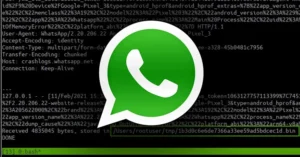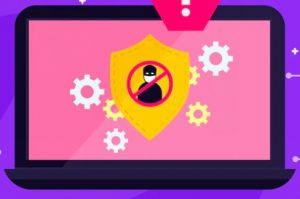Is Your Personal Data (PII) Really Safe? Think Again.
In today’s digital age, your personal data is your identity — and losing control over it can cost you your money, reputation, and peace of mind. But how safe is your Personal Identifiable Information (PII)? Are the banks, apps, and institutions you trust doing enough to protect it?
Let’s explore how vulnerable your data really is — and what you can do to protect yourself.
🚨 Cybercriminals Are Everywhere
Cybercriminals aren’t just hackers working from basements. They’re sophisticated, organized, and always on the hunt for your data. Whether it's your Aadhaar number, PAN, or mobile number, once it's in the wrong hands, you become a potential victim of fraud.
💳 Why Do They Want Your Personal Data?
Your personal data is a passport to financial fraud. Criminals use stolen PII to apply for loans and credit cards in your name, access your bank accounts, and perform identity theft or online scams. From your mobile number to your address — it’s all a digital goldmine.
🏦 What Happens to the Documents You Submit?
Whenever you open a bank account, apply for a loan, or sign up at an institute, you submit xerox copies of critical documents — Aadhaar, PAN, and income proof.
But here's the scary part — what happens after submission?
If that doesn't alarm you, it should.
🏫 Data Negligence Is Far Too Common
There are many such incidents of data negligence. From hospitals to coaching classes, organizations casually mishandle sensitive information. Some sell student or customer data to marketing agencies. Others leave documents in the open or dispose of them without shredding.
💻 Data Breaches at Financial Institutions
Don’t assume banks and financial apps are always secure. In the past, major data breaches have exposed sensitive customer details like credit card numbers, phone numbers, email IDs, and transaction histories. Often, this data ends up on the dark web, available for sale to the highest bidder. Some users even discover this only after noticing strange transactions or loans under their name.
📱 Your Mobile Phone May Be Compromised
Most people unknowingly install apps that request unnecessary permissions — access to your contacts, camera, messages, and location. Once granted, these apps can collect and transmit your personal data silently.
Many users think: “It’s just a mobile game” or “Just a shopping app” — but the hidden risk is real.
🧾 You Might Be on CIBIL Without Knowing It
Many victims find out they have a low credit score or open loans — loans they never applied for. That’s because fraudsters, using stolen PII, manage to take loans under their name. Don’t wonder if you’re on CIBIL due to a loan you never applied for — it happens more often than you’d think. Checking your credit report regularly can help you catch this early.
📸 Social Media Oversharing Can Backfire
Every post, every story you share can give away personal details like your birthday (hello, password hints!), your address or travel plans, your family members' names, and even your workplace or daily routine. Criminals use this public data to build a profile — and the more they know, the easier it is to trick you or your contacts.
✅ How to Protect Your Personal Data
Here are some simple yet powerful steps to safeguard your digital identity:
- Limit document sharing — only give what’s absolutely necessary.
- Use digital KYC where possible and ask about data retention policies.
- Always destroy or shred old photocopies of documents.
- Check if the institution or app has a privacy policy in place.
- Install apps only from trusted sources like Google Play or App Store.
- Review app permissions regularly and remove unnecessary access.
- Enable 2FA (two-factor authentication) for all important accounts.
- Monitor your credit report (CIBIL) every 6 months for unusual activity.
- Avoid sharing personal information on public social media posts.
- Never share OTPs, passwords, or financial info over phone or chat.
Your data is your digital identity. Once compromised, the damage can be long-term and hard to reverse. From financial fraud to emotional stress, the consequences are real.
Take control. Stay informed. Stay secure.
Because once your identity is gone, it’s not just a privacy issue — it’s a life issue.
Page Views: 329



